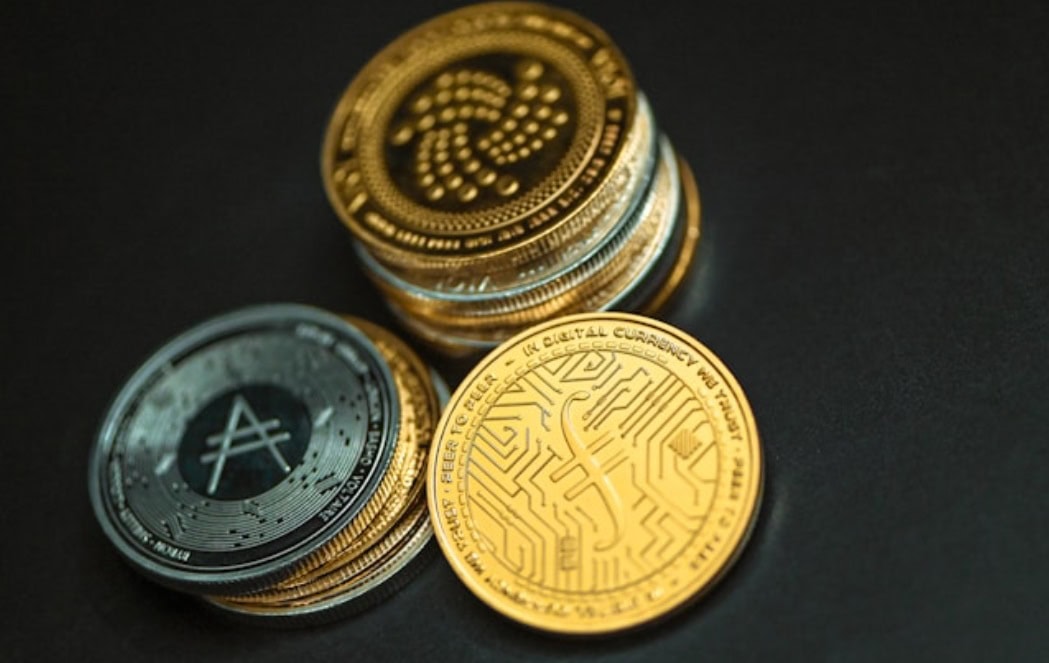This month, the attention of the world has been firmly focused on the Middle East, with the escalating tensions between Iran and Israel raising fears of a regional war.
At the start of April, Israeli forces bombed the Iranian consulate building in the Syrian capital of Damascus. The attack is believed to have killed senior commanders in the Iranian Revolutionary Guard, including Mohammed Reza Zahedi of the Quds Force and his deputy Hadi Haji-Rahimi.
Iran then responded by launching drones and missiles at Israel, the first time Tehran has launched a direct attack on the country. While the attack was widely believed to be mainly symbolic – most analysts believe that Iran wanted to demonstrate that it would not tolerate what they see as further Israeli escalation – it prompted a retaliation from Israel.
Markets therefore started to fear that the outbreak of a regional war was increasingly possible. The US dollar and gold, both hedges against risk, both made strong gains.
However, Iran did not ultimately respond to the second Israeli strike, with a senior military commander playing down the attacks and even suggesting that Jerusalem was not necessarily responsible. Markets certainly welcomed these comments as they increased confidence that the tensions would not escalate to all-out war.
Israeli markets have strengthened since the #Iran attack, with traders confident (for now) that the conflict will not escalate to all-out war between Jerusalem and Tehran. #Israelhttps://t.co/pcZKK6c3Ug
— #DisruptionBanking (@DisruptionBank) April 17, 2024
Mohammad Soltaninejad, Assistant Professor of Middle East and North Studies at the University of Tehran, told Disruption Banking that “currently, the likelihood of war or a significant military conflict between Iran and Israel is low. Iran has deemed Israeli attacks unworthy of a direct response, while Israel has calibrated its actions to encourage Iranian self-restraint.”
However, he warned that global policymakers should not become complacent. “This détente may be temporary, and the possibility of war remains in the months ahead. A regional war would have a profound impact on Iran, exacerbating its already precarious economic situation,” Soltaninejad said. “With the government facing budget deficits, any major military conflict involving Iran in the region would lead to severe disruptions in the Iranian market, and the further depreciation of the Iranian currency against the US dollar.”
Iran is suffering from inflation, currency depreciation and the impact of international sanctions. Will new Western boycotts planned following Iran's attack on Israel impact Tehran's ability to wage war?https://t.co/zCH5KidnoC
— DW News (@dwnews) April 19, 2024
Could this be the real reason for Iran deciding to pull back from the brink of war with Israel? Military considerations will, of course, have played a role. But Iranian leaders may also have had an eye on the worsening economy they are having to deal with at home – an economy which may well prove unable to survive war with Israel.
It is difficult to understate how precarious the state of the Iranian economy is in many ways. The poverty rate of Iran has increased by 10% in the last two years alone, and by approximately 50% since 2017. Part of the problem is that inflation is running rampant – prices rose at a rate of 41.9% in 2022 – while many workers are on fixed salaries that have decreased in value dramatically in real terms. Local media reports have suggested that young people have taken to selling their kidneys, livers, and bone marrow in a desperate attempt to meet their financial needs.
Macro issues, including a huge government deficit and significant amounts of corruption, have also played a role in worsening the economic situation. However, many of the problems stem from the sanctions which have been imposed by the US to different extents following the seizure of the US Embassy in Tehran in 1979.
The sanctions were briefly eased in 2016, when the Obama administration agreed to lift most sanctions in return for limits on Iran’s nuclear programme, but then reinstated in 2018 by President Trump. They were then expanded in 2019 and 2020 to cover Iran’s financial sector.
Tehran may have refrained from escalating the military conflict with Israel for fear that the US could back Israel by imposing even more stringent sanctions. While Soltaninejad noted that “the West’s sanctioning capacity against Iran has been largely depleted and few sectors remain in Iran’s economy where the US can impose sanctions effectively,” he did acknowledge that one crucial area remains: Iran’s oil trade with China.
We must cut off the illicit oil trade bankrolling Iran. That’s why I introduced the SHIP Act to put secondary sanctions on Iranian petroleum and why today the House is voting on my Iran-China Energy Sanctions Act targeting financial institutions processing Iranian oil purchases. pic.twitter.com/ZjeR32yWxB
— Congressman Mike Lawler (@RepMikeLawler) April 15, 2024
Indeed, the majority of Iran’s industrial revenues come from the oil industry, which ships more than 90% of its crude oil to China. Beijing is prepared to skirt US sanctions in return for significant discounts on Iranian oil. In the first three months of the year, Tehran managed to sell an average of 1.56 million barrels of crude oil a data, almost all of which went to China. This trade could be threatened if the US moves to impose sanctions on Chinese banks facilitating the trade of Iranian crude oil.
Soltaninejad told Disruption Banking that “the most significant economic risk for Iran is the potential success of US sanctions on its oil exports to China. Presently, Iran relies on China for 90% of its oil exports. If the US persuades China to significantly decrease its oil purchases from Iran, the country will confront substantial challenges in maintaining its current economic stability.”
“In the current fiscal year, Iran heavily relies on tax revenues to manage its economy. A significant reduction in oil revenue would compel the government to borrow from the central bank beyond its means. This would lead to money printing and, consequently, a rise in inflation.”
Should Tehran become embroiled in a full-blown with Israel, the US would almost certainly retaliate by going after Iran’s oil trade with China. In turn, the higher inflation this would prompt in Iran, and further depreciation of the Iranian rial, would almost certainly push even more Iranians into poverty. Would Tehran be able to survive the economic fallout of war with Israel? It would certainly be a very dangerous game for Iran and for its regime.
Author: Harry Clynch
#Iran #Israel #US #Sanctions #Inflation














